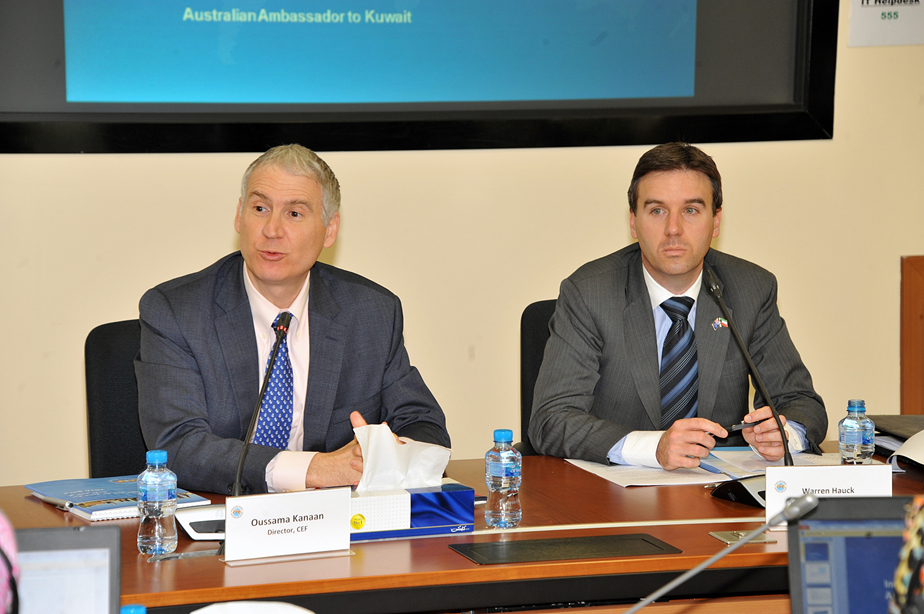Center News
The Australian Ambassador Lecture on Inclusive Growth Macroeconomic and Sectoral Policies
December 2nd, 2015

The Australian ambassador to Kuwait Warren Hauck held a talk in the second event of the CEF’s Eminent Speakers Series on December 2, 2015. The event took place as part of the training course on “Inclusive Growth: Macroeconomic and Sectoral Policies” and was moderated by CEF Director Oussama Kanaan. In his opening remarks, Kanaan explained the importance of robust and inclusive growth for the Arab region. He noted that Arab countries and particularly oil-exporters can learn a great deal from the Australian experience. “Indeed, the country is a large commodity exporter and yet it showed economic resilience and over time was able to successfully diversity its exports”, Kanaan said.
Ambassador Hauck presented the Australian experience and highlighted how the country managed to achieve both strong economic growth and inclusiveness. “We are now in the 25th year of uninterrupted economic growth as a result of several reforms we introduced since 1991. The country’s resilience has been sustained by sound macroeconomic policies, strong institutions and continued demand for hard and soft commodities from Asia” Ambassador Hauck noted. He pointed out that Australia is the only developed economy to have no annual recession during the past 23 years, placing it alongside high-growth economies such as China and India. Ambassador Hauck cited some factors that explain such an outstanding achievement including the floating of the Australian dollar, the reduction of tariffs on imports under five percent, the dismantling of the centralized wage fixing and the creation of a more flexible labor market. “We reformed inefficient government monopolies in telecommunications, transportation and water. The reforms boosted productivity and reduced the production costs. We also reformed the tax system, strengthened social policies and provided more funding for universities”, Hauck added.
Hauck noted that there are “five success factors for reforms”: proper prioritization and sequencing; finding the “right pace”; creating a broad recognition of the need for reform; giving a voice to the winners from reforms; and finally, a healthy government budget and readiness to overcome the downturns. “Australia continues to invest in the education sector, training programs and infrastructure. We will be strongly focusing on innovation as we live in a globalized world. We might face challenges ahead but with 25 years of solid growth, I think we are in the right position”, Ambassador Hauck concluded.
Press coverage:
